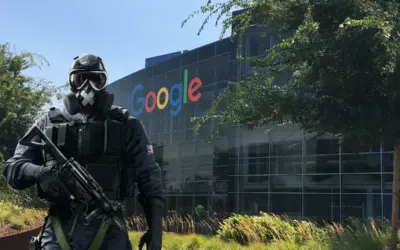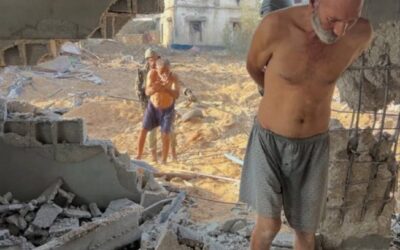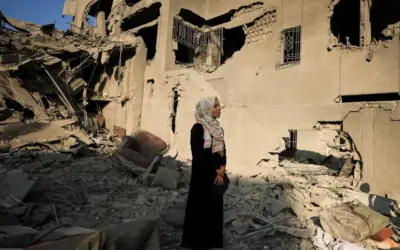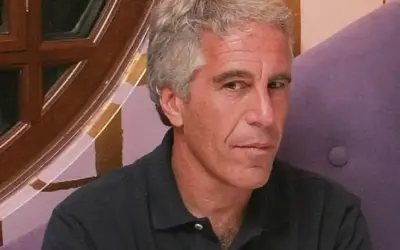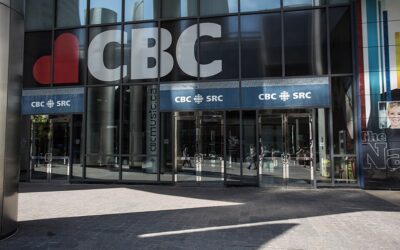The article PAJU has chosen to share this week, written by Larry Haiven, is possibly the longest article we have published in the twenty years of PAJU’s existence. It is also one of the most important articles we have shared. ‘Cancel Culture’ is a clear and unequivocal look at the manner in which the pro-Israel lobby in Canada uses threats and intimidation to get various venues to cancel any and all events critical of Israel’s reprehensible policies toward the beleaguered and subjugated Palestinian population. What is more, there is every likelihood that similar tactics are employed in every country where the Israel lobby exists.
The mechanics of ‘cancel culture’ such as fashioned by the Israel lobby and its use of the false notion of anti-Semitism as put forth via the International Holocaust Remembrance Alliance (IHRA) definition of anti-Semitism are displayed with a candor which immediately makes Mr. Haiven’s article one which must be shared widely. We encourage readers to share the article with others, especially on their own lists. Moreover, if you are on Facebook or Twitter, please share the reference to Larry Haiven’s article.
PAJU extends its thanks to Larry Haiven for his permission to reprint his article. We have also translated the article to French.
‘Cancel culture’ and the Israel lobby
More than two dozen recent examples of the Canadian pro-Israel lobby’s cancel culture playbook in action
By Larry Haiven
When Sportsnet fired Canadian hockey and media personality Don 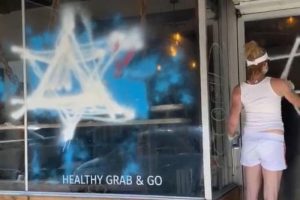 Cherry in November 2019 for his bigoted remarks on Coach’s Corner, we heard the usual right-wing complaint chorus about the suppression of free speech by the liberal left.
Cherry in November 2019 for his bigoted remarks on Coach’s Corner, we heard the usual right-wing complaint chorus about the suppression of free speech by the liberal left.
A favored method of censorship nowadays is said to be “de-platforming,” or denying those you disagree with a platform to speak. This is also called “cancel culture.” Most recently, a group of around 150 prominent intellectuals signed a “Letter on Justice and Open Debate” in Harper‘s magazine, setting off a firestorm of debate about the limits of free speech on the left.
In reality, though, cancel culture is (at best) a marginal activity on the left. By and large, progressives still believe in reasoned debate.
This article refers to experience in Canada, but it has its counterpart in many other countries as well.
If we want to identify the real masters of cancel culture, however, we need to follow the modus operandi of the institutional pro-Israel lobby and its adherents, like the Centre for Israel and Jewish Affairs (CIJA), B’nai Brith Canada (BBC), the Simon Wiesenthal Center (SWC) and other organizations on the Jewish right. They can teach us a thing or two about how to kill free speech, and how cancel culture works to stop an utterance before it is even spoken.
Presumably, the reason to nip an Israel-critical event in the bud is that if it goes forward, people might attend and learn something, especially from a rigorous debate. Even a picket-line outside an event or a disruption during one might draw attention to what is being said. For the avid intellectual protectors of Israel, that must be stopped at all costs.
The Pro-Israel Cancel Culture Playbook
A spate of examples will follow, but first, to summarize, here are what might be called the “rules of engagement” for the pro-Israel de-platformers.
The minute you hear about an event featuring a critique of Israel, employ the following formula:
- Have a number of organizations at work. If the CIJA is squeamish, then get B’nai Brith Canada to do it. If they or the Simon Wiesenthal Center have qualms, then the imprudent and belligerent Jewish Defense League or Herut Canada can rush in.
- No matter how distinguished and credible the speaker, try guilt-by-association, however tenuous. Did their uncle belong to a questionable organization? Did their cousin write something critical of Israel? Do they pay dues to a student union that supports Boycott, Divestment and Sanctions (BDS)? Shut them down!
- If the speakers are academics, go after their publications or insist their tenure be denied. If they are students, demand that their degrees be withheld. The Canadian Jewish Newsrecently reported: “Rather than debating them about Israel, Manfred Gerstenfeld, the former chair of the Jerusalem Centre for Public Affairs (JCPA), makes the case for professionally discrediting the enemies [sic] of Israel. ‘Find plagiarism or a wrong footnote and make it public,’ he said at a fundraising event for the Canadian Institute for Jewish Research, in Montreal on Dec. 1 [2019]. ‘Only about 10 per cent of academics are hard-core anti-Israel and the rest are not going to risk their careers. Academics are cowards.’”
- Absent real evidence of antisemitism, a mere accusation will suffice.
- Find out where the event is being held and who are the sponsors. Contact both the venue and the sponsors and tell them that the speaker or the event is antisemitic.
- If you don’t want to threaten violence yourself, suggest that there might be violence from some unknown quarter if the event proceeds.
- Tell the host or sponsor that they too will be considered antisemitic if they continue involvement.
- If any of the venues or sponsors accede to these demands, publicize it to shame the non-acceders.
- If an event you don’t like is cancelled or postponed, claim credit.
- Even if the shut-down attempt is not completely successful, the cost and effort involved in resisting your attack will frighten the organizers and make others think twice about doing something similar in the future.
- What I call the “cringe effect” is particularly useful with the media. When a critic of Israel appears, initiate an avalanche of disparaging letters, emails, and phone calls. Even if the preponderance of material in the particular media outlet has been pro-Israel, criticize the “lack of balance.” If all else fails, demand “equal time” of equal prominence for an opposing view. That should scare the media outlet away from the topic.
The Playbook in Action
While pro-Israel cancel culture goes back a long way, the following are more than two dozen fairly recent examples of the playbook in action. They are taken mostly from published reports, but a few are taken from accounts by people who were directly involved.
Vancouver
In 2016, anti-Israeli-occupation activists were slated for a panel at a Simon Fraser University (SFU) conference on genocide. One presenter would argue that what had been done to the Palestinians constituted genocide. (The Convention on the Prevention and Punishment of the Crime of Genocide definition involves any of the following: killing members of the group; causing serious bodily or mental harm to members of the group; deliberately inflicting on the group conditions of life calculated to bring about its physical destruction in whole or in part; imposing measures intended to prevent births within the group; and/or forcibly transferring children of the group to another group.) B’nai Brith reached out to SFU to have the panel cancelled. Organizers pushed back, reaching out to a range of supporters at SFU. The panel and conference went ahead.
In 2017, the University of British Columbia (UBC) Alma Mater Society (student union) gave notice of a referendum to support the Boycott, Divestment and Sanctions movement: “Do you support your student union in boycotting products and divesting from companies that support Israeli war crimes, illegal occupation and the oppression of Palestinians?” Rather than campaigning to get students to reject that motion on its merits, Hillel, an organization that purports to represent Jewish university students, filed a court motion to bar the referendum entirely. That court action failed.
In 2018, the Canadian Association of Cultural Studies sponsored a conference at SFU entitled “Carceral Culture” including a panel on Israel/Palestine. Again, B’nai Brith attempted to get it cancelled. Counter-mobilization defeated the B’nai Brith gambit.
Calgary
In 2014, the group Canadians for Justice and Peace in the Middle East (CJPME) prepared a photo exhibit entitled “Dispossessed, but Defiant: Indigenous Struggles from around the World” which juxtaposed the Palestinian travails with those of other objects of colonialism, like South African blacks under apartheid and Canadian indigenous peoples. The exhibition was meant to travel to venues around Canada, but pro-Israel opponents attempted repeatedly to block those displays. In Calgary, they managed to de-platform the exhibit from a small community centre. When the hosts finally found a United Church location, opponents inundated the new venue with calls and emails. The show went ahead but the activists have never been able to rent that church since, validating points 10 and 11 in the playbook, above.
In 2016, local activists booked space at the Canadian National Institute for the Blind for a talk by Haider Abu Ghosh of the Palestinian Medical Relief Society, about the eradication by the Israelis of three Palestinian villages in 1967. The activists were forced by complaints to switch the event to the Calgary Public Library. Pro-Israel groups put so much pressure on the library that the hosts were forced to provide security, at significant cost.
Calgary writer Marcello Di Cintio won the City of Calgary W. O. Mitchell Book Prize in 2012 for “Walls: Travels Along the Barricades” and, again, in 2018 for “Pay No Heed to the Rockets: Palestine in the Present Tense.” But local pro-Israel organizations opposed his appointment as writer-in-residence at the public library, insisting, against all evidence, that he was an antisemite.
Winnipeg
In February, 2018, several groups, including Independent Jewish Voices-Winnipeg, the Canadian Arab Association of Manitoba and the United Jewish Peoples Order-Winnipeg, organized a public meeting at the University of Winnipeg entitled “My Jerusalem” to discuss the US government’s recent decision to move its Israeli embassy to Jerusalem. One of the speakers was Rabbi David Mivasair, a member of Independent Jewish Voices. Unable to have the meeting cancelled, B’nai Brith Canada complained to the university that the speakers were antisemitic and demanded that the university apologize. B’nai Brith claimed that one of the speakers accused Israel of committing a “genocide” against Palestinians and that another referred to Israeli Jews as “European settlers.” The university’s Human Rights and Equity officer investigated the complaint and, claiming to have consulted the International Holocaust Remembrance Alliance working definition of antisemitism, allowed the smear to stand, concluding that the criticism of Israel amounted to antisemitism. When asked by meeting sponsors precisely which statements in the meeting were antisemitic, the officer declined to answer.
Rabbinical student Lex Rofeberg, an activist with the American Institute for the Next Jewish Future, had been invited as a keynote speaker to Limmud Winnipeg (an annual Jewish cultural and educational event) in March 2019. Limmud canceled the invitation when the Jewish Federation of Winnipeg threatened to withdraw its sponsorship, complaining that Rofeberg was a critic of Israel and a supporter of BDS and the organization IfNotNow. Neither of Rofeberg’s planned presentations (one on digital Judaism, the other on Judaism and sports) had anything to do with his views on Israel, but he was guilty by association.
In April 2019, the Winnipeg Social Planning Council and the Canadian Muslim Women’s Institute invited American-Palestinian activist and co-founder of the 2017 women’s march Linda Sarsour to speak. The Jewish Federation of Winnipeg and B’nai Brith Canada, among others, lobbied to get the event cancelled and convinced the Winnipeg mayor and the provincial deputy premier to oppose it. The opponents managed to get Sarsour shut out of the Seven Oaks Performing Arts Centre and the meeting moved to the Ukrainian Labour Temple, where it continued.
Toronto
With Canada’s largest Jewish as well as Muslim and Arab populations, Toronto can be a lightning rod for de-platforming outrages. In 2007, CanStage, a theater company, decided to cancel its plans to mount a production of “My Name is Rachel Corrie” (a play taken from the writings of the American activist killed in Gaza by an Israeli bulldozer while protesting), and two years later Crow’s Theatre presented no more than a few “staged readings” of “Seven Jewish Children” (by British playwright Caryl Churchill). Both plays were critical of Israel, and both of these Toronto productions had been subject to negative lobbying by the pro-Israel lobby who labelled them antisemitic.
A more sensational example of cancel culture occurred when, in 2009, scholars at Queen’s University and at York University’s Osgoode Hall Law School organized an international conference called “Israel/Palestine: Mapping Models of Statehood and Paths to Peace.” The advisory board of the conference included four Israelis. Yet, pro-Israel organizations including the Jewish Defense League, CIJA, Hasbara, B’nai Brith, and United Jewish Appeal Federation of Greater Toronto went on the warpath, demanding the conference be cancelled. York University was warned of boycotts and the cessation of donations and was denounced in full-page newspaper ads. When B’nai Brith accused one of the speakers of being a Holocaust denier, a threatened lawsuit forced B’nai Brith to apologize on its web page. When the university refused to cancel the event, the Stephen Harper Conservative federal government ordered the Social Sciences and Humanities Research Council to reconsider its funding of the event (which the SSHRC refused). The Canadian Association of University Teachers (CAUT) set up an independent commission of Inquiry under mathematician Jon Thompson to investigate. The commission and the book that emerged from it (“No Debate: The Israel Lobby and Free Speech at Canadian Universities,” Lorimer 2011) concluded that, although the event went ahead, academic freedom had been grievously damaged.
In 2009, the Koffler Centre for the Arts (associated with Toronto’s Jewish community) commissioned an art project from Reena Katz commemorating the history of Kensington Market. But when its executive director discovered that Katz had called Israel an “apartheid state”, the organization dissociated itself from the project. As in the Limmud case in Winnipeg, above, and other examples, below, the Kensington exhibit had nothing to do with Israel. But Katz was guilty by association.
In 2011, a master’s thesis critical of Israel by University of Toronto student Ben Peto entitled “The Victimhood of the Powerful: White Jews, Zionism and the Racism of Hegemonic Holocaust Education,” was roundly denounced by pro-Israel groups, who demanded that the university withdraw their degree. University officials demurred.
For years, pro-Israel organizations have attempted to have the Quds Day march in Toronto entirely shut down. Occurring annually in June and originally sponsored by the Iranian government, the event has drawn fire from pro-Israel organizations, mostly due to the strength of its criticism of the Israeli regime. In March 2019, after consultations with legal specialists and other stakeholders, Toronto city staff reported that shutting down the entire activity was not advisable. After demands to reconsider, staff reported a month later that the city already had means at its disposal to counter specific acts of alleged hate speech. According to this second report, moreover, in response to complaints by pro-Israel advocates about the 2018 rally, Toronto police had concluded “the words spoken during the rally, which were captured and posted to YouTube, did not fit the criteria of a Hate Crime.” Undeterred, opponents initiated other actions to disallow the event. The rally went ahead in June 2019, with 1,000 participants and proceeded online amid the coronavirus lockdown in 2020.
In summer of 2019, the Palestine Youth Movement was planning an event at Toronto’s Trinity St. Paul’s United Church to launch a new scholarship named after Palestinian novelist and nationalist Ghassan Kanafani. B’nai Brith Canada appealed to the board of the church to cancel the event, based on its claims that Kanafani was a spokesperson for the Popular Front for the Liberation of Palestine and was implicated in the 1972 Lod Airport Massacre (he was assassinated soon afterward by the Israelis). The church board quickly capitulated. Kanafani has a martyr’s cachet among Palestinians similar to that of Josef Trumpeldor for Israeli Jews.
Sometimes the pro-Israel cancel culture crowd targets moderate pro-Israel Jews, too, reminiscent of the toxic internal feuds that tear family businesses apart. In January 2020, York University’s Israel and Golda Koschitzky Centre for Jewish Studies canceled a panel discussion about the climate for Jewish students on campuses. The Jewish Defense League boasted online that it was responsible, explaining that it opposed the appearance of moderate Mira Sucharov (which the JDL labelled, incorrectly, a “BDS enabler”). To make the intervention truly bizarre, the JDL also opposed the presence of Alexandre Joffe, who is the editor and BDS monitor for the group Scholars for Peace in the Middle East, which is anti-BDS.
In July 2020, an individual with the Jewish Defense League (JDL) was filmed defacing the storefront of the Foodbenders sandwich shop in Toronto in broad daylight. According to Yves Engler, writing at Mondoweiss:
“JDL thugs held a rally in front of Foodbenders, which has ‘I Love Gaza’ painted on its window. During their hate fest they scrubbed a Palestinian Lives Matter marking from the sidewalk and, similar to what Jewish supremacist settlers do to Palestinian homes in the occupied West Bank, someone painted the symbol on the Israeli flag onto the restaurant window. Alongside painting Stars of David on her storefront, Foodbenders’ owner Kimberly Hawkins has faced a bevy of online abuse. Hawkins has been called a ‘dirty Palestinian whore’ and told ‘Palestine sucks I will burn your business down’ and ‘I hope your family gets trapped inside the restaurant when it burns.”
Hamilton
For over 25 years, Hamilton has hosted the Gandhi Peace Festival. In 2019, B’nai Brith attempted to have two speakers kicked off the program, organized by McMaster Professor Rama Singh. One of the speakers targeted was Azeezah Kanji, an Islamic law scholar and director of programming at the Toronto-based Noor Cultural Centre. The other was McMaster Professor Emeritus Dr. Atif Kubursi, an economist specializing in oil and the Middle East and former Acting Executive Secretary of the United Nations Economic and Social Commission for Western Asia. He is the recipient of the Canadian Centennial Medal for his outstanding academic contributions. Neither of them was expected to even speak about Palestine at the event, but both had made statements critical of Israel in the past and thus were accused of guilt by association. At B’nai Brith’s urging, the Hamilton Jewish Federation withdrew its participation. The event went on without the Federation’s participation but with those two speakers presenting.
Institutional Jewish organizations have tried for many years to get university presidents across the country to ban Israeli Apartheid Week (IAW). One of the more aggressive campaigns against IAW has been at McMaster University. In 2020, several groups, including the Jewish Defense League and Hillel Ontario asked McMaster University to outlaw the annual event, claiming it makes Jewish students on campus uncomfortable and unsafe. The university declined to comply with the blanket request to shut down the activities. A spokesperson insisted that “The group organizing the event in question is a student group registered with the McMaster Students Union… [these] groups are governed by McMaster’s Student Code of Conduct, which promotes the safety and security of all students and encourages respect for others.”
London
The University of Western Ontario’s Student’s Council has a long history of trying to de-platform campus organizations devoted to criticism of Israel. At first, it was Solidarity for Palestinian Human Rights (SPHR), then UWO Public Interest Research Group (UWO-PIRG). One of the speakers that UWO-PIRG had sponsored (and presumably offended the Student’s Council) was renowned Jewish-Israeli historian Ilan Pappe, author of, among other books, “The Ethnic Cleansing of Palestine.” The Ontario Human Rights Commission upheld three complaints against the university and one against the Student’s Council and required the Student’s Council to apologize and to ratify the organizations
Ottawa
Rehab Nazzal is a multidisciplinary artist of Palestinian origin based in Toronto, some of whose work deals with the harsh treatment of Palestinians by Israel. Nazzal’s 2014 exhibition “Invisible” at the Karsh-Masson Art Gallery on the ground floor of city hall in Ottawa was publicly condemned by Israel’s ambassador to Canada, and several pro-Israel groups, including B’nai Brith Canada demanded that the mayor cancel the exhibition. The mayor refused, citing freedom of expression. But the city posted a disclaimer outside. The groups also protested the fact that Nazzal had received a financial award from the Social Sciences and Humanities Research Council of Canada. Nazzal later spoke to a standing-room-only crowd in Ottawa and received a standing ovation. In 2015, an Israeli sniper shot Nazzal in the leg while she was photographing a confrontation in Bethlehem. According to the Ottawa Citizen, Israeli spokesperson Eitan Weiss commented, “It’s very difficult to ascertain what happens during a riot, because you have to imagine hundreds of people throwing rocks, Molotov cocktails, using live firearms … it’s very difficult to prove that it ever happened, and it’s very difficult to prove that it didn’t happen.”
Montreal
Zahra Kazemi was an Iranian-Canadian photographer who died in 2003 under mysterious circumstances in an Iranian jail after being arrested for taking pictures of a demonstration in that country. In June 2005, five photographs were pulled from an exhibition of her work at the Côte St Luc (in Montreal) municipal library. The controversial photos were taken in Palestine. A borough official explained that consideration of the borough’s large Jewish population played a role in the decision. Kazemi’s son, Stephan Hachemi, refused to let the display continue without the censored photos, arguing that it was an insult to his mother’s legacy.
In January 2009, the Combined Jewish Appeal cancelled at the last minute a lecture at its Gelber Centre by the noted Israeli peace activist Jeff Halper. Halper was on a Canada-wide tour to criticize Israel’s Operation Cast Lead against Gaza, which killed 1,417 and wounded 5,303 Palestinians. A similar cancellation of Halper occurred in Winnipeg, though Halper filled other auditoriums across the country.
In February 2010, pro-Israel organizations attempted to block the CJPME photo exhibit (see Calgary above) from being shown at the Cinema du Parc theatre. Lawyers for the cinema’s landlord insisted that the premises were only “for cinemagraphic [sic] use.” The cinema, which had hosted other political displays in the past, refused to back down, and the exhibit went on.
In November 2013, a Limmud Montreal conference (named “Le Mood”) funded by the local Jewish federation canceled two presentations by Sarah Woolf, an activist behind “Renounce Birthright” (a website critical of junkets to Israel for Jewish youth). One session was entitled “Where are all the radical Jews?” and another focussed on the history Jewish garment workers in that city. Woolf and co-facilitator Aaron Lakoff wrote on Lakoff’s blog: “Ultimately, we’ve been banned from speaking at Le Mood because of our personal politics (or whatever Le Mood and Federation CJA perceive our respective politics to be), not based on the content of our panels, which were reviewed, accepted, and scheduled months ago.” In response to the de-platforming, Lakoff and Woolf set up the presentations in a parking lot outside the main conference site and garnered a crowd of over 100 people.
Halifax
In October 2016, the Halifax Pride Annual General Meeting entertained a motion from the group “Queer Arabs of Halifax.” The resolution would disallow the distribution at the annual Pride Fair of materials touting the state of Israel for its alleged LGBT-friendliness. QAH and its allies claimed that these materials allowed for the ‘pinkwashing’ of Israel’s violations of human rights against the Palestinians. Another group, the Nova Scotia Rainbow Action Project, had collected over 500 names on a petition condemning the pinkwashing. In response, the Atlantic Jewish Council organized hundreds of Jewish community members to attend the AGM to protest and disrupt the vote, although the vast majority of the interlopers were not LGBTQ+. AGM organizers made the controversial decision to allow all attendees at the meeting to vote. This resulted in the defeat of all Israel-critical resolutions and a walkout by BIPOC (Black, Indigenous and People of Colour) participants claiming, “Straight white pride wins again.” A Palestinian LGBTQ+ participant said the meeting takeover reminded him of the Israeli occupation. Another commentator summed it up thus: “This is a classic example of where one group hides behind the guise of free speech until the moment where they can take their free speech and beat it over the head of everyone else.”
During the 2018 Naim Ateek tour mentioned above, the Religious Studies Department of Saint Mary’s University, one of the sponsors of the Halifax event, received a letter from B’nai Brith Canada demanding the cancellation of the talk. The department, familiar with Ateek’s work and repute, refused, and the event continued.
In June 2019, a Dartmouth, Nova Scotia NDP candidate standing for the 2019 federal election was discovered to have made some tweets a year earlier comparing the Israeli shooting of Gazans in the “March of the Return” to the actions of Nazi Germany. Rana Zaman, a tireless community activist, issued an apology with the help of IJV-Halifax, but the NDP federal office suggested she run it by the Atlantic Jewish Council, the local institutional Jewish organization. The AJC had no response to the apology other than sending Zaman a copy of the IHRA definition, which labels as automatically antisemitic “drawing comparisons of contemporary Israeli policy to that of the Nazis.” The NDP Federal office removed Zaman from the candidacy.
In December 2019, the Nova Scotia Human Rights Commission bestowed a coveted “Individual Human Rights Award” on Zaman. The Atlantic Jewish Council immediately began a campaign to have Zaman stripped of the award, and the revocation followed a mere ten days later. Jewish institutional organizations refused to accept Zaman’s original apology, insisting that it was insincere.
Conclusion
All of the above de-platforming takes a lot of work. And it makes the pro-Israel lobby look like the bullies they are. Right now, there is altogether too much messy debate. Consequently, the lobby wants to build a better mousetrap; one that will alleviate the need to intervene each and every time there is an event or activity criticizing Israel. How much easier if the better mousetrap operates to slam shut automatically, breaking the mouse’s neck without untidy arguments and recrimination.
Such a better mousetrap is the International Holocaust Remembrance Alliance working definition of antisemitism. As Independent Jewish Voices has pointed out, the IHRA definition is remarkably sloppy and vague. But it does contain eleven “examples” of antisemitism, seven of which involve criticism of Israel.
The lobby is trying to get the IHRA definition adopted by legislatures, city councils, non-governmental organizations, student unions, human rights bodies, police departments, universities, and any forum that could possibly be in a position to shut down or sanction activity critical of Israel. We do not know whether or how the adoption of the IHRA definition by these bodies could actually criminalize criticism of Israel. In Canada, after all, we still have freedom of expression under the Charter of Rights and Freedoms.
However, we have seen how the mere accusation of antisemitism—accurate and deserved or entirely bogus—has been used to hobble political and other types of careers.
We have also seen how the IHRA definition has been used to punish people and organizations who have run afoul of it. The case of the University of Winnipeg cited above is one example. Claiming to have employed the IHRA definition, the university’s diversity officer declared the meeting antisemitic, and the university apologized for allowing the meeting to take place.
We have seen that B’nai Brith Canada employs the IHRA definition to decide which occurrences should be added to their audit of antisemitic incidents.
Finally, we have seen that the increasingly open use of the term antisemitic to label those who criticize Israel could encumber legitimate lawsuits for defamation by victims of that slur.
That is why defenders of Palestinian human rights and proponents of peace and justice in the Middle East need to double our vigilance to ensure that the IHRA definition goes no further and that freedom of expression and sanity returns.
A version of this article first appeared in Canadian Dimension on July 10, 2020, and an expanded version appeared in SocialistProject.ca.
Adapted from: https://mondoweiss.net/2020/07/cancel-culture-and-the-israel-lobby/
See also: Uncovering Canadian Media’s Devastating Pro-Israel Bias https://readpassage.com/uncovering-canadian-medias-devastating-pro-israel-bias/
Distributed by PAJU (Palestinian and Jewish Unity)
PAJUMONTREAL.ORG/EN


